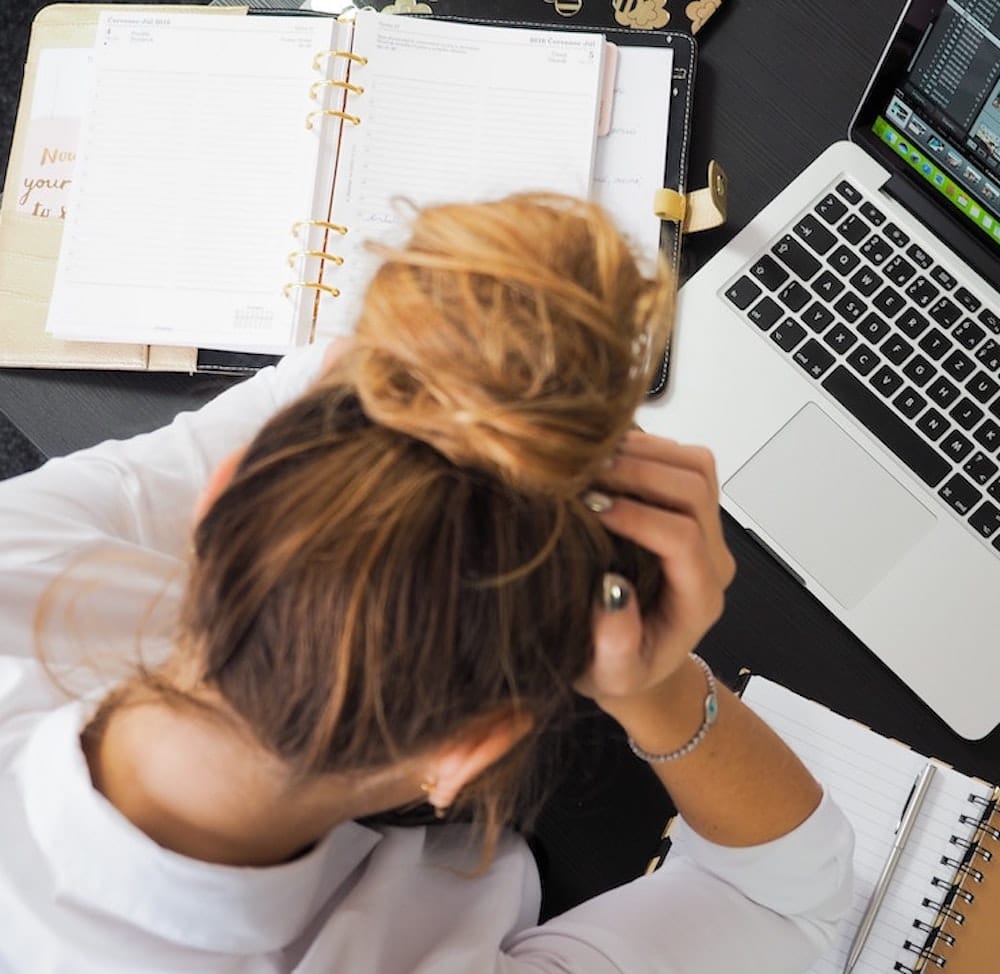What causes itchy scalps?
When our scalp itches, it can sometimes be hard to think about anything else and it can feel like it's never going to stop.
Itching is in fact the manifestation of a pro-inflammatory mechanism which is our immune system's natural response to fight an infection or a wound.
In practice, our immune cells detect the presence of dangers via their PRR receptors (Pattern Recognition Receptor) and emit signals that activate other cells whose role is to eliminate the identified danger or repair the lesion.
When it comes to the scalp, what are the possible causes of immune system activation that can cause itching?
An itchy scalp can have a number of causes, including 4 most frequent causes :
1. Allergic reaction (contact dermatitis)
Itching is most often our scalp's natural reaction to being attacked by an irritating product.
The irritants in question are numerous and are generally contained in hair dyes, shampoos or styling products. The itching disappears as soon as you stop using these products. We recommend spacing out hair colouring as much as possible and, above all, we remind you that shampoos are designed to wash the hair fibre but not the scalp. Contrary to popular belief (and to what is often recommended by brands), contact between shampoo and scalp should be kept to a minimum, scalp should never be 'rubbed' with shampoo and shampoo should never be left on.
2. Dandruff
We have grouped together all the dandruff families here, whether or not they are linked to psoriasis, dandruff or dandruff-related conditions, eczema or another dermatosis.
The presence of dandruff corresponds to accelerated renewal of the superficial cells of the scalp. This renewal (desquamation) takes place continuously without us being aware of it, but sometimes the pace accelerates and the dead cells can no longer be completely eliminated by the scalp.
In some cases, these clusters of dead cells cause itching on both dry and oily scalps.
3. Lice
Lice are transmitted by direct contact (head to head) or indirect contact (sharing a hair comb, brush, cap or headphones). They move very quickly over the scalp and through the hair, often (but not always) causing itching.
There are a number of treatments available from chemists that are effective in completely eliminating lice and their nits, as well as rapidly soothing the scalp.
4. Atopic dermatitis
Atomic dermatitis results from dysfunction of one or more nerves. An intensely itchy scalp without signs of a rash or other skin reaction may be a sign of this dermatitis. It therefore refers to a problem along a nerve due to injury, disease or abnormality in the functioning of the nerve. Diseases that can affect nerve function include diabetes and shingles. Scarring (or an injury) can also affect the functioning of these nerves and cause itching.
Your doctor will be able to diagnose atopic dermatitis and set up a specific care programme to relieve itching on the scalp.
Other very rare causes of itching include ringworm, scabies and hives.
Thanks to our many years of experience, Clauderer is able to offer protocols for fast, effective relief of itchy scalp.
Finally, if your itching is accompanied by pain, sores or swelling of the scalp, or if it is so intense that it prevents you from sleeping properly or living normally, you should consult your doctor.
How can I soothe an itchy scalp?
To soothe itchy scalps, cider vinegar has been used for centuries. This effective grandmother's remedy offers antibacterial, anti-inflammatory and antifungal properties. It can therefore help reduce the itching caused by a dry scalp. You can dilute it in warm water and use it as a conditioner.
Laits Clauderer will provide an effective, long-lasting solution for suffering scalps. Each formula is tailored to a specific scalp type (dry or oily) to provide effective relief from itching.
What oil should I use to soothe itchy scalp?
The 3 oils best known for soothing itching are :
1. Tea tree oil
Tea tree oil, available in organic food shops, has anti-inflammatory, anti-microbial, anti-fungal and antiseptic properties.
2. Coconut oil
Coconut oil is extracted from ripe coconuts. It contains lauric acid, a saturated fat with antimicrobial properties, making it an effective treatment for soothing itchy scalps.
3. Peppermint oil
Peppermint oil can be effective in reducing dandruff and soothing itching.
Warning: these oils can irritate the skin and scalp. They are Use sparingly and preferably diluted in another oil, preferably olive oil.
The right homemade recipe to relieve itchy scalp? Mix 20 drops of tea tree, coconut or peppermint oil in a little olive oil. Massage your scalp with the resulting mixture.
How can I wash my hair with white vinegar?
White vinegar is a basic product that can easily be found in any supermarket. It is known to cleanse the scalp and rid it of impurities. It also balances the pH of the scalp, helping to eliminate itching and dandruff.
Others prefer cider vinegar which has been used for centuries to improve the health of the skin and hair.
The 2 vinegars are well known grandmother remedies for treating an itchy scalp. They have more or less the same effects on the scalp. Cider vinegar is also said to produce a "shine" effect on the hair, making it easier to detangle and adding volume.
What the 2 have in common is their natural acidity, which eliminates sebum residue, promotes the elimination of dandruff, soothes itching and reduces the risk of dandruff and of scalp irritation.
As with oils (vegetable oils or essential oils), it is recommended not to use pure vinegar on an irritated scalp, but to dilute it in water (1 part vinegar to 1 part water). Then apply the mixture to the scalp, massage gently (without rubbing) and leave for 5 minutes before rinsing with cold or warm water.
Centre Clauderer experts recommend using these products with caution, as their acidity has proven virtues, but over time can be aggressive for the scalp and hair.

